Topic: Lets' Learn a Language!
The students were assigned to develop apps that helped users improve one or more language skills: listening, reading, speaking, and writing.
(Internal access only) The videos of the final project presentation can be found in oliver under "WS DIS1/2016 WS/Project Presentation Videos/".
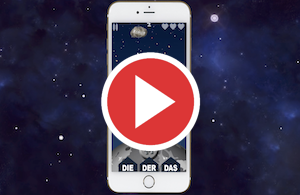 |
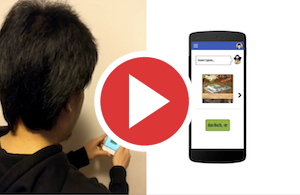 |
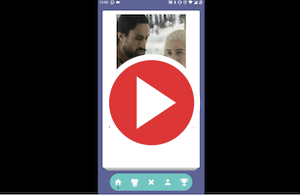 |
Projects by Students from Aachen
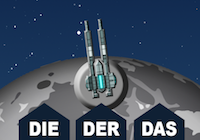 |
Lingo Boom is a collection of mini-games that aims to simplify learning articles and vocabulary for the German language via repetition. Jia Lai, Luka Raljević, Stella Coumbassa, Sven Titgemeyer, Takieddine Bouyoucef, and Xiaoli Yang Slides: Group 1 (open in Prezi) Online Demo (For internal access) Project Wiki |
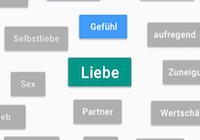 |
Based on the user’s location and calendar, VocabYOUlary suggests context-based word fields, which can then be further explored for interactive learning. Sebastian Addicks, Johannes Maas, Aaron Paul Grabowy, Maren Grüter, Mathis Müller, and Benedikt Kalde (For internal access) Project Wiki |
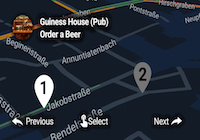 |
Built for Google Glass, LingoQuest allows users to learn language skills by undertaking quests in real world. Erik Yves Haakon Müller, Philipp Uhl, Martin Huppertz, Joel Chuks Charles, Simon Sebastian Glimm, and Nicolas Jonas Jezuita (For internal access) Project Wiki |
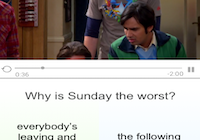 |
iLearn is a fun way to learn language skills. Users can use the app to unlock and watch TV shows/movies, based on which they will be asked language-assessment questions. Edi Cikovic, Michal Piotr Slupczynski, SteliyanTonev Hadzhidenev, Ali Ariff, and Kathrin Mäusl Slides: Group 4 (For internal access) Project Wiki |
 |
Instagrammar records your daily conversation, transcribes it, and spots the language issues with it. Users can use it to identify the common mistakes they make and to keep track of them. Mihail Petrov Padev, Binh Phi Nguyen, Orkhan Huseynov, Derui Zhu, Md Mahbub Al Hasan, and Dipankar Bahirvani Slides: Group 5 Video of the Interaction (For internal access) Project Wiki |
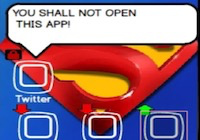 |
LockEd: Parents can enforce restrictions on mobile usage for their children, who then play games to improve language to gain mobile usage time. Yuan-Chia Chang, René Magritz, Tobias Welschenbach, Anne Bürkel, Timo Gervens, and Konstantin Bauer Slides: Group 6 (For internal access) Project Wiki |
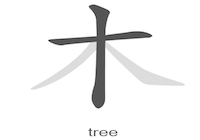 |
LingoUI is an app that allows users to learn Chinese characters by letting them practice meaningful and memorable ways of drawing each character. Andre Mann, Jens Wischnewsky, Peter Sommerhoff, Patrick Jan Schlesiona, Yalcin Bogazci, and Gordon Lawrenz Slides: Group 7 (For internal access) Project Wiki |
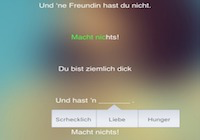 |
Songify takes the pleasure of listening to good music and combines it with gasification to have an engaging way of learning a language. Lucas Dührsen, Lauri Eurén, Orkhan Alizada, Waqar Ahmed, Mikko Elmeri Karjalainen, and Norunn Wankel (For internal access) Project Wiki |
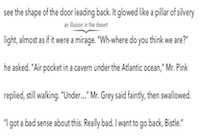 |
Seagull offers adaptive in-line vocabulary clues in an e-book to help users improve their English language skills. Fabian Comanns, Martin Schmitz, Lea Johanna Sternberg, Denise Pascale Fries, Jenny Reinhard, and Benedikt Allendorf Slides: Group 9 (For internal access) Project Wiki |
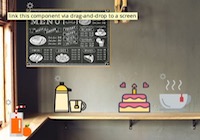 |
City Lang is a mission-based app, where users create their own avatars and accomplish missions in the city to learn German. Hoda Anvari Kazemabad, Idil Esen Zülfikar, Jona Hebaj, Mahmoud Maher Mohamed Ahmed Kassem, Mirela Peskovic, and Muhammad Salman Sayani Slides: Group 10 Prototype: Group 10 (requires an app downloadable from https://www.justinmind.com) (For internal access) Project Wiki |
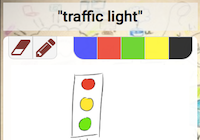 |
Tandem is a mobile application that allows users to learn a language by playing games with a native speaker. Jana David, Carmen Cargnel, Stefan Ahlers, Carl Orge Retzlaff, Emanuel Domnitsch, and Prethep Paramananthan Slides: Group 11 HTML Prototype: Group 11 (For internal access) Project Wiki |
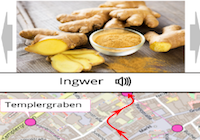 |
LinGuide is a mobile application that suggests phrases based on user’s location when he/she is traveling to a foreign country. Stefan Meeger, Philip Julian Kindermann, Daniela Maria Albiez, Nihal Hegde, and Julian Büttner Slides: Group 12 Online Demo (For internal access) Project Wiki |
Projects by Students from Bonn
 |
LanGo allows users to utilize the tiny nuggets of time they find throughout the day to learn a language. Zain Ahmed Sohail, Yueh-Tung Chen, Gyumin Lee, Fan Yang, Furqan Mehmood, Mubashir Hanif, and Muhammad Usman Slides: Group 1 (For internal access) Project Wiki |
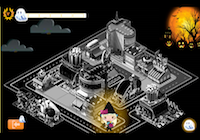 |
Hokage is an iOS application where users explore a virtual city and undertake exciting adventures to learn a language. Mojtaba Taghizadeh, Jingyan Zhang, Xiao Feng, Yue Hu, and Zheng Zhou Slides: Group 2 (For internal access) Project Wiki |
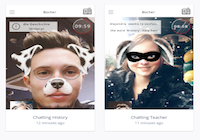 |
Meh is an app that enables shy wannabe language learners to get connected and video chat to learn language. Jiyoung An, Viktor Lopatin, Linh Chi Tran, Hanbing Zhang, Svetlana Shishkovets, and Nilda Kipi Slides: Group 3 (For internal access) Project Wiki |
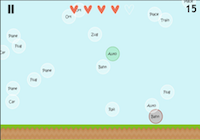 |
PlayGround is a website where adults can play games to improve their language skills. Narayan Ghimire, Abdullah Abdullah, Shipra Pant, Mayesha Tasnim, Md Sami Ahmad, and Vatsala Sharma Slides: Group 4 Online Demo (For internal access) Project Wiki |
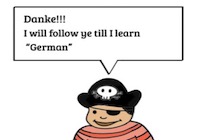 |
Ahoy is an adventure-based game, where the user follows a storyline to learn language skills. Shubham Kapoor, Vinoth Pandian Sermuga Pandian, Arijit Gupta, Vincentius Renaldi, and Andi Heynoum Dala Rifat Slides: Group 5 Online Demo (For internal access) Project Wiki |
 |
Dothraki takes you on a fiery adventure through the Game of Thrones universe to learn the Dothraki language. Chandan Acharya, Devendra Bharatesh Hupri, Nagesh Tavarekere Ramamoorthy, Rakesh Mahaveer Lagare, Vinay Prabhu Pyati, and Vishnu Nandakumar Menon Slides: Group 6 (For internal access) Project Wiki |
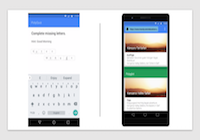 |
Polyglot helps users learn not one, but multiple languages through a multi-lingual notepad, multi-language translation, and quizzes. Abhijeet Das, Rahul Lao, Sahib Mukhija, Hasan Mosharrof, and Harish Balaji Shanmuga Sundaram Slides: Group 7 (For internal access) Project Wiki |

